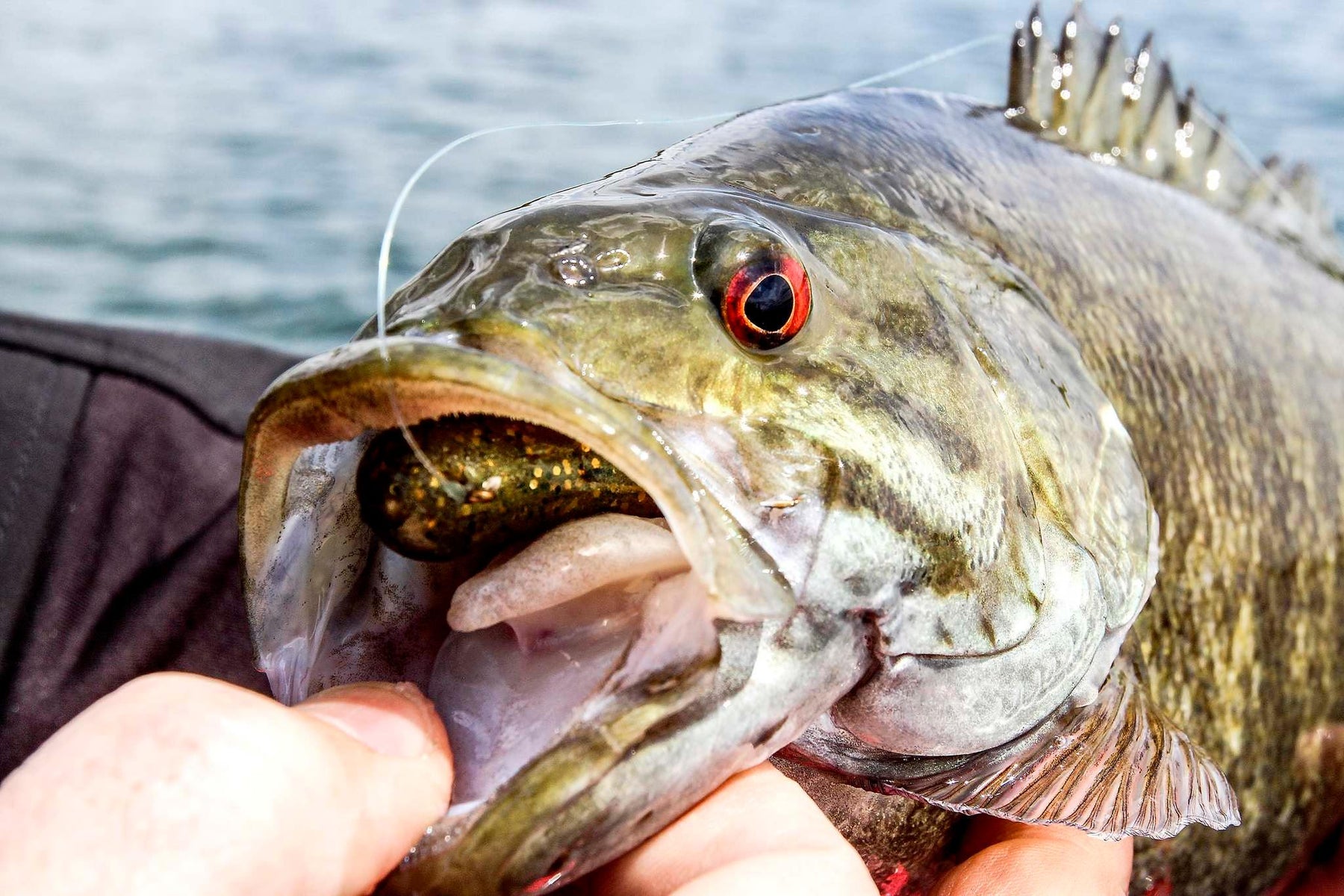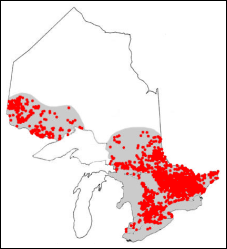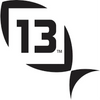
What it looks like
- medium-sized, deep-bodied fish
- green to olive back and sides
- yellow to white belly
- body often has dark vertical broken bars
- 9 to 11 dorsal fin spines
- shallow notch between dorsal fins
- upper jaw does not extend beyond eye
Size
- length: 25-50 centimetres (10-20 inches)
- weight: 0.5-1.6 kilograms (1-3.5 pounds)
- Ontario record: 4.5 kilograms (9.8 pounds)
Similar fish
Where it is found

Range
- Great Lakes watershed, St. Lawrence River and northward beyond Lake Nipissing
- introduced into many areas of Northwestern Ontario
- use Fish ON-Line, an interactive mapping tool, to find specific lakes and rivers
Habitat
- clear, rocky lakes and rivers
- shoreline rocks and points, offshore shoals, deep water
- similar to trout habitat but with a wider range of temperatures
Find a fishing spot with Fish ON-Line
Angling tips
- best fishing in the early morning and late evening
- look near deep underwater points, rocky shoals, submerged islands, weed edges
- when fish aren’t biting, change your lure and your tactic
- use a light to medium action spinning rod and 6 to 10 pound test line
- bass season opens the 4th Saturday in June in most of Ontario
Common baits
- soft plastic lures such as crayfish imitations, twister tails and small worms or tubes
- jigs, crankbaits, spinnerbaits
- top-water plugs
- small, deep-diving plugs and lures
- surface lures (in early morning and evening)
- leeches, minnows, crayfish


 1572 Victoria St N.
1572 Victoria St N.

















